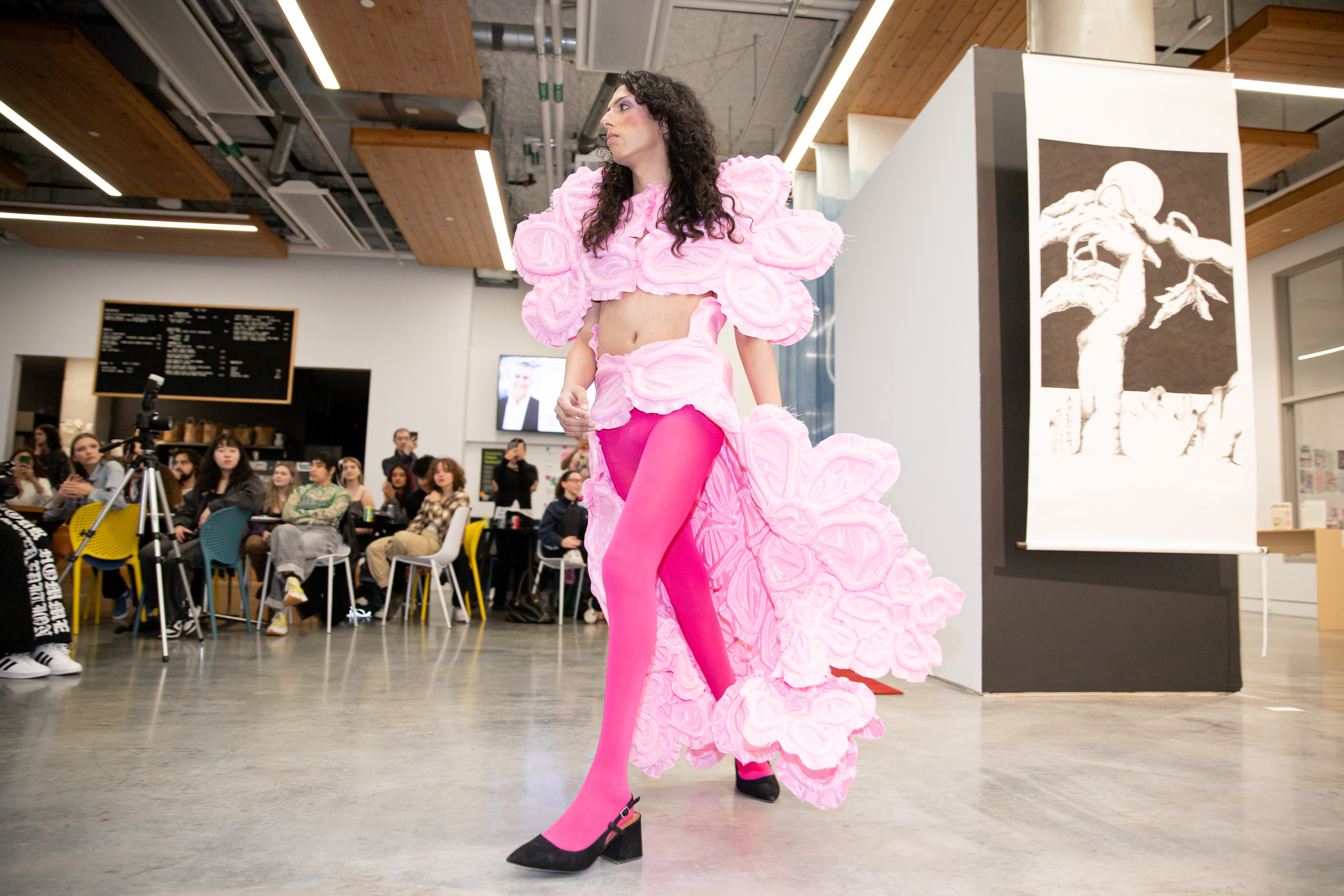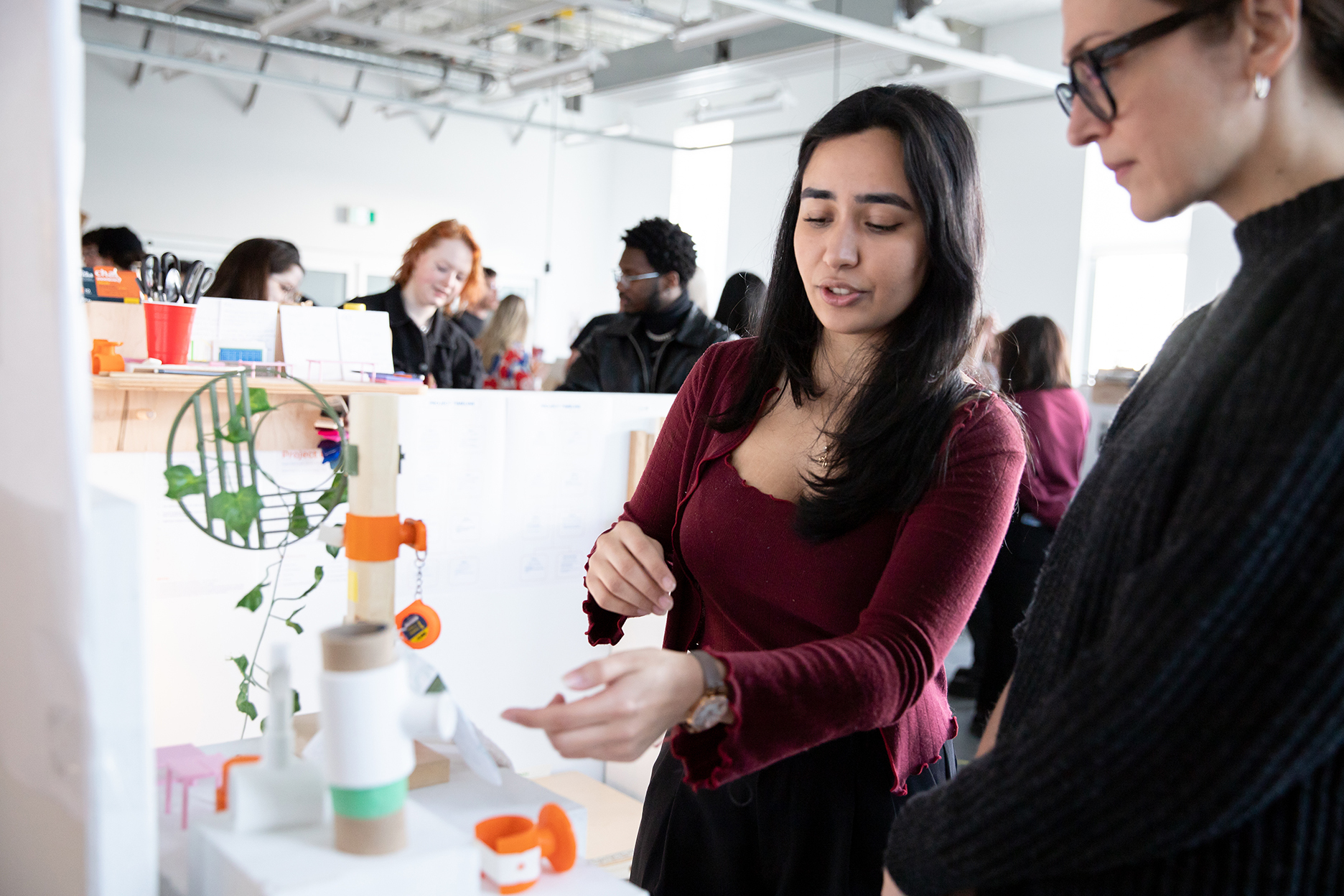Parnian Anaa Earns Multiple Awards for Multidisciplinary Capstone Project
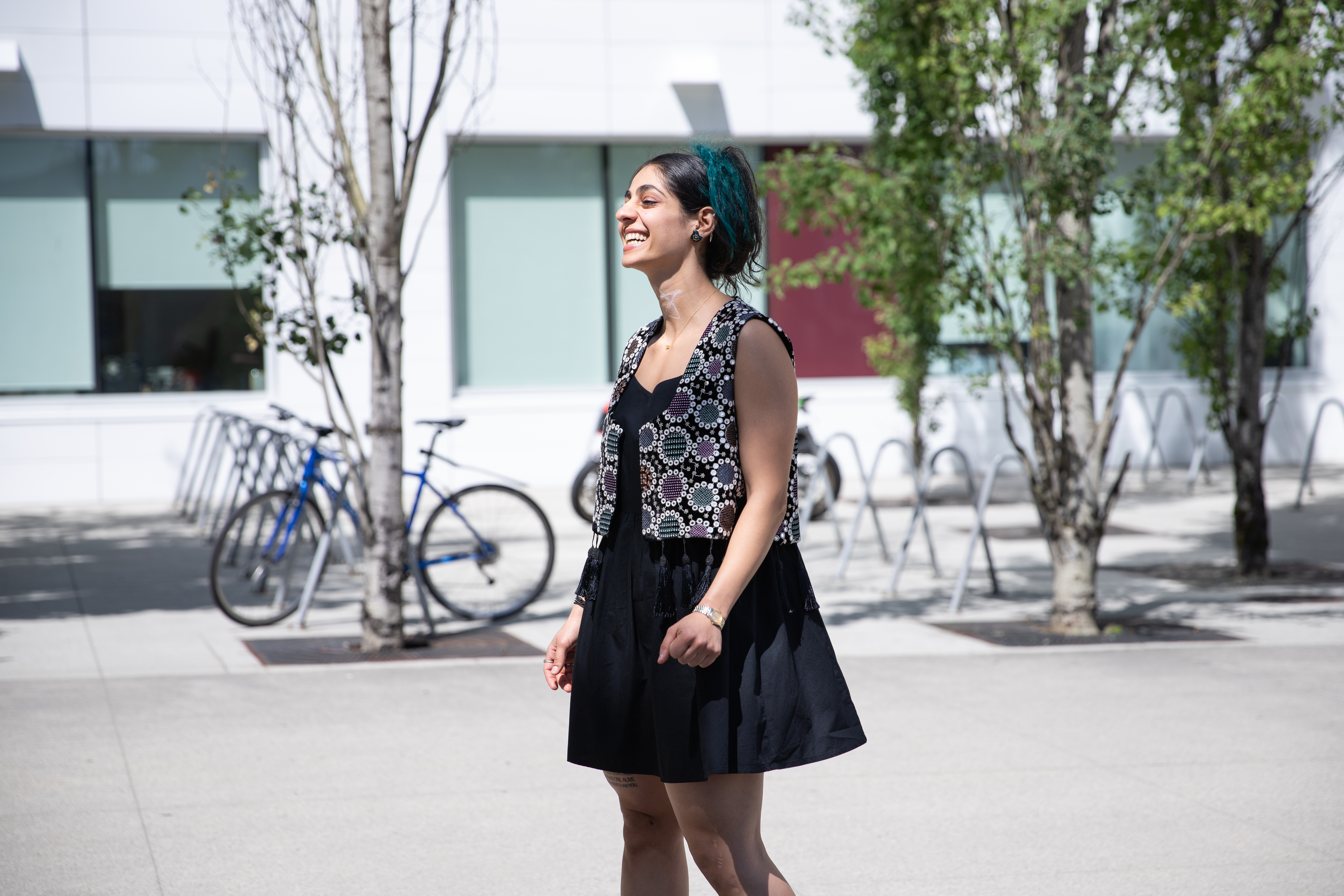
Parnian Anaa's award-winning capstone project draws together relational work, poetry, photography, publication, industrial design, textiles and more to explore issues including colonialism, migration and ecology. (Photo by Perrin Grauer)
Posted on
The designer, artist, athlete and recent ECU grad was recognized for ALL YOU NEED IS LOVE, which explores issues including colonialism, migration and ecology.
Parnian Anaa (BDes 2025) is the 2025 recipient of several awards from Emily Carr University of Art + Design (ECU) recognizing her capstone project, ALL YOU NEED IS LOVE.
The multidisciplinary research, performance and design project earned Parnian the 2025 Emily Carr Alumni Association Graduation Award (ECUAA) for Community Engagement, the DESIS Radical Sustainability Award, and a Lieutenant Governor’s Medal for Inclusion, Democracy and Reconciliation.
The ECUAA award recognizes a student who has engaged meaningfully with community in their project, as well as through extracurricular activities and in their lived experience. The DESIS award honours student projects that demonstrate how design can “activate, sustain, and orient processes of social change toward sustainability.” The Lieutenant Governor’s Medal recognizes students who “excel in their studies and contribute to the life of their institution or community.”
Meanwhile, Parnian was awarded a 3M National Student Fellowship from the Society for Teaching and Learning in Higher Education in acknowledgment of her “outstanding leadership qualities” and expansive vision of education.
Additionally, the design alum, artist and athlete delivered a speech during convocation as the 2025 undergraduate student speaker.
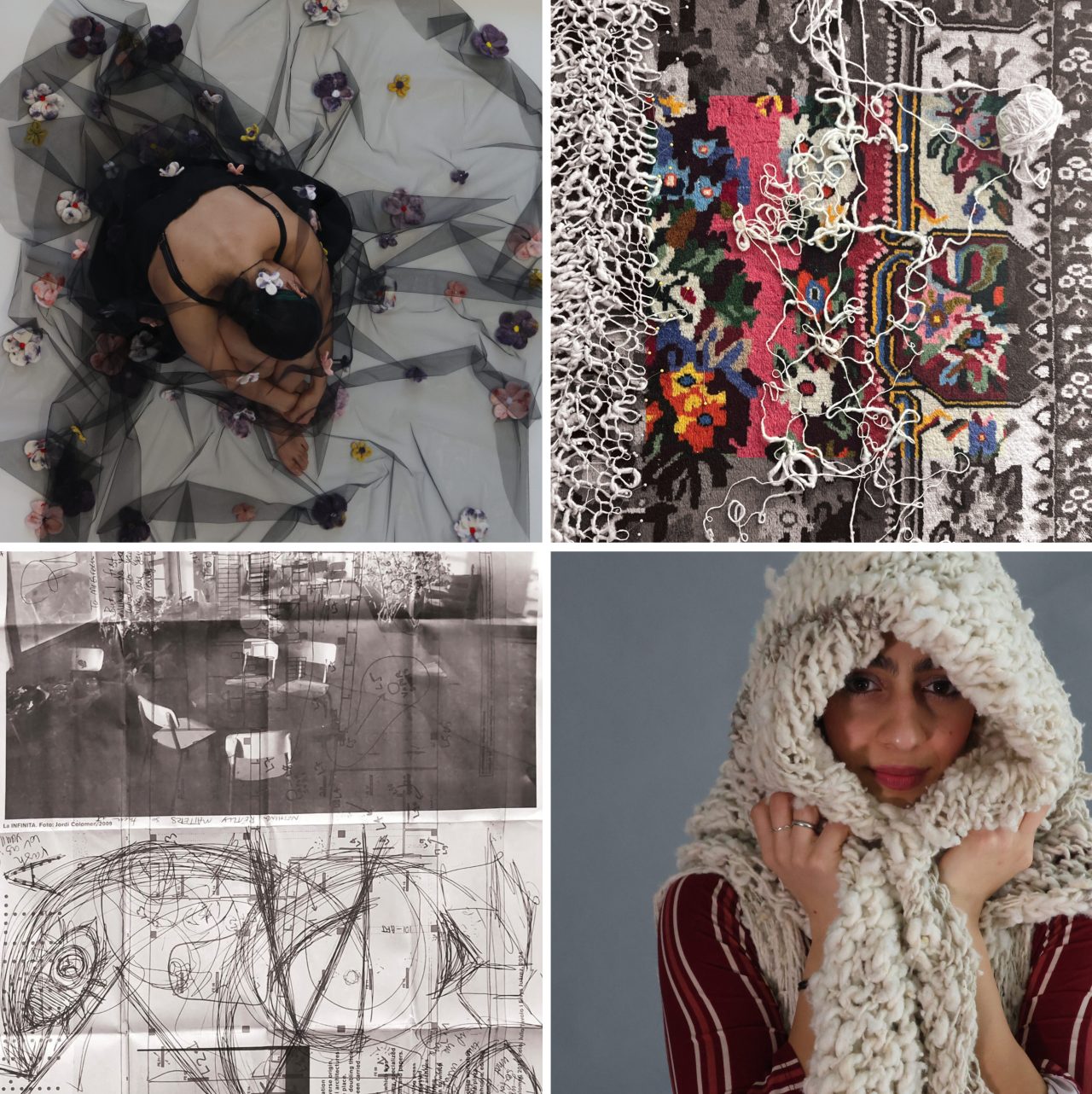
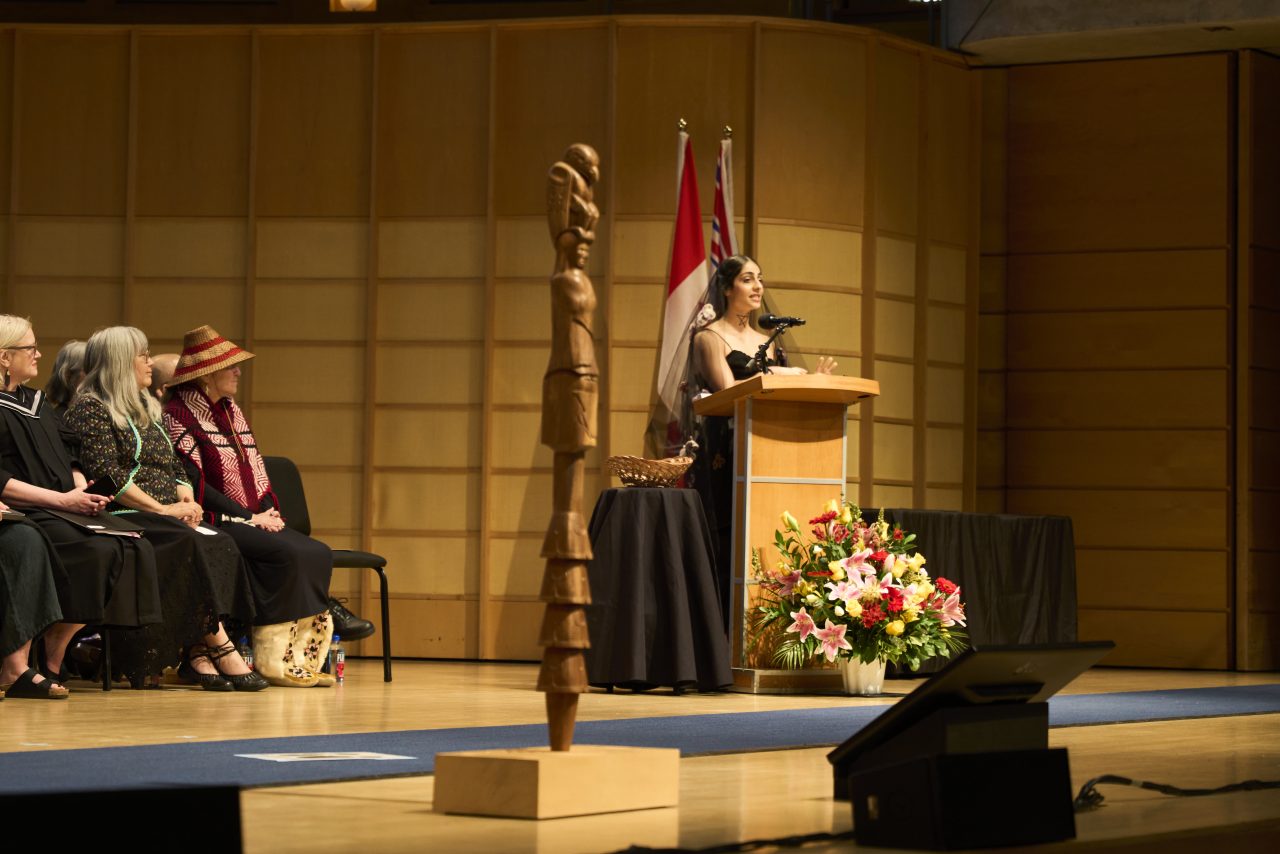
Top: Process images from Parnian Anaa's ALL YOU NEED IS LOVE. (Courtesy Parnian Anaa). | Bottom: Parnian delivers a convocation address in Chan Centre as the 2025 undergraduate student speaker. (Photo by Jenn Xu)
ALL YOU NEED IS LOVE draws together relational work, poetry, photography, publication, industrial design, textiles and more to explore issues including colonialism, migration and ecology. Through these diverse mediums and material processes, Parnian funnels expansive ideas, channeling her thoughts into storytelling objects and physical actions, performed independently or in a community setting.
While majoring in Industrial Design at ECU, Parnian regularly employed performance art, textile practices and community-building to develop new ways of understanding and informed approaches to design.
Her community-facing work took the form of events such as the 2024 Art of Writing Gratitude Letters workshop series and a semester-end performance/live reading. But she is also a dedicated process-based designer, working slowly with natural materials to uncover their agency.
Wool, in particular, is vital to Parnian’s artistic process. Having learned to spin in a second-year course, she obtained some wool that had been donated to the school for student use. The soft, pliable material became a comfort for Parnian, while the repetitive, hypnotic rhythm of spinning soothed her.
Unlike other materials Parnian works with, such as ice and metal, wool is easy to transport from place to place, serving as a vehicle for creative expression as well as a companion and a form of emotional support. Its warmth eases the “seams of the room” and “breaks the stiffness.”
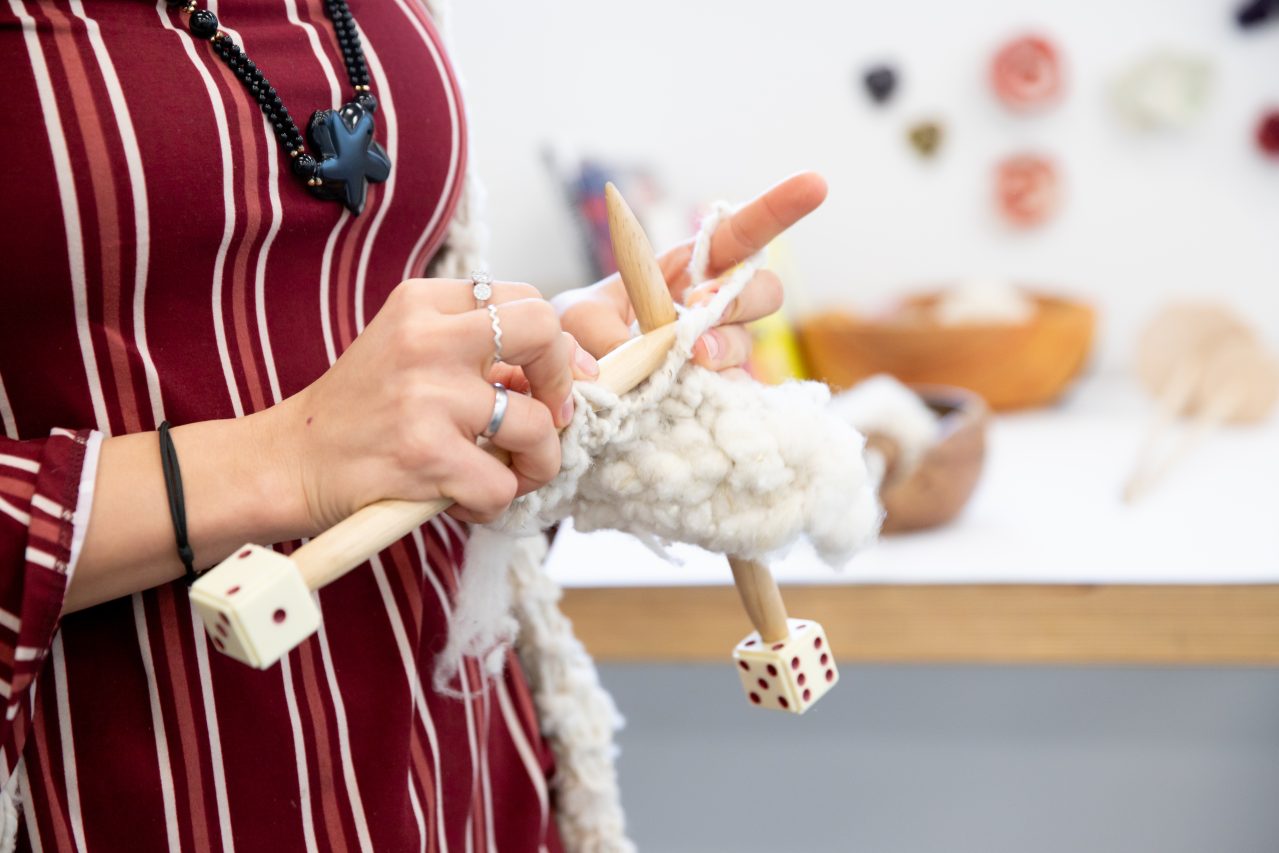
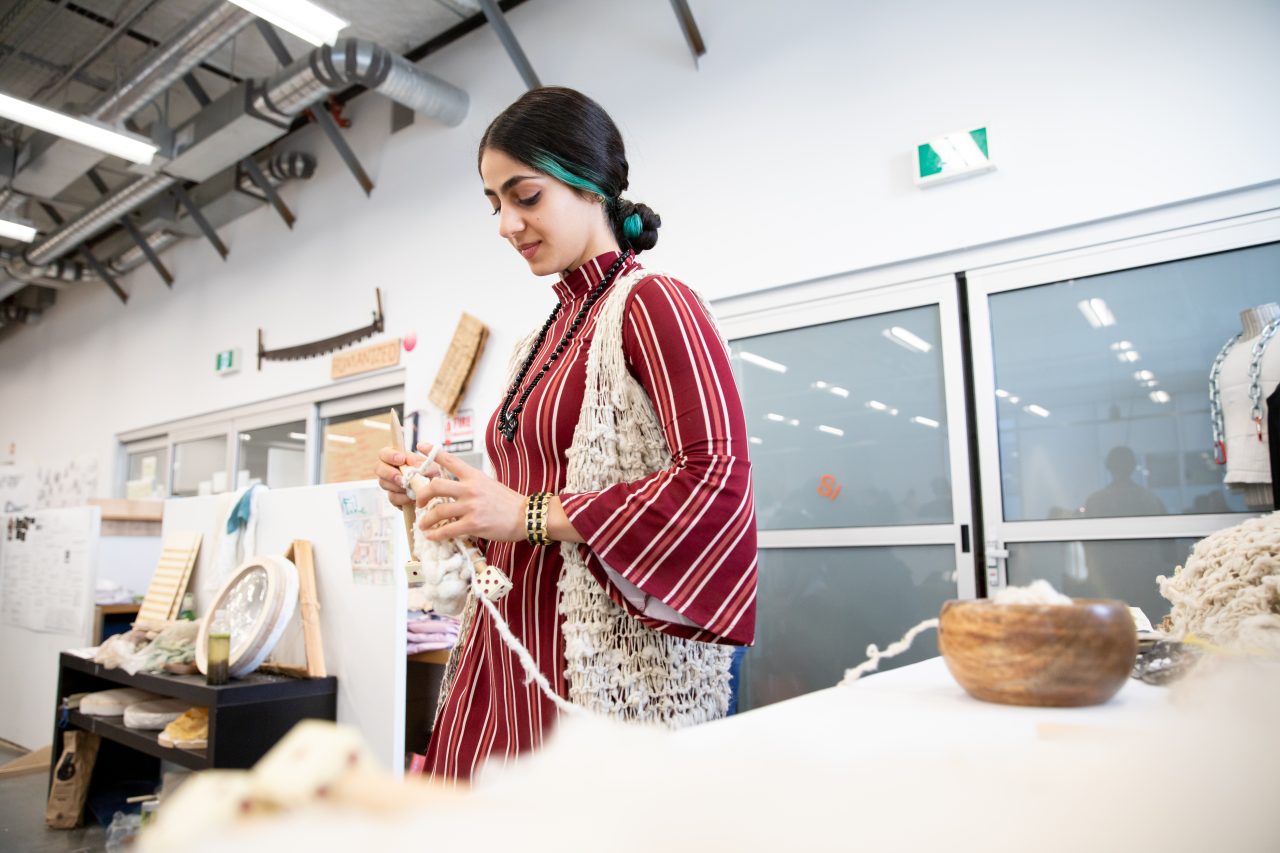
Parnian works with wool during the 2025 Industrial Design Open Studio at ECU. (Photos by Perrin Grauer)
Mental health and community also inform ALL YOU NEED IS LOVE, which documents the struggle of isolation related to immigration, depression and disconnection, as well as the healing power of others.
In the accompanying book—formally inspired by Yoko Ono’s artist book Grapefruit—Parnian articulates years of research through process photos, poetry, reflections on performances and instructions/calls to action.
ALL YOU NEED IS LOVE is inextricably connected to Parnian’s experience at ECU, beautifully illustrating her six years of study. In her time as a student, she involved herself in meaningful ways in the Students’ Union, on the Board of Governors, and
“I loved being a student,” she says, already with some nostalgia.
For Parnian, community means more than just the current (and human) inhabitants of a place. The space, the land and the memories and ancestors of those passing through are all a fluid and far-reaching community, all of which is integral to how she shapes her practice and works to reshape the world.
“I wouldn’t be able to achieve my own internal peace without community,” she says.
